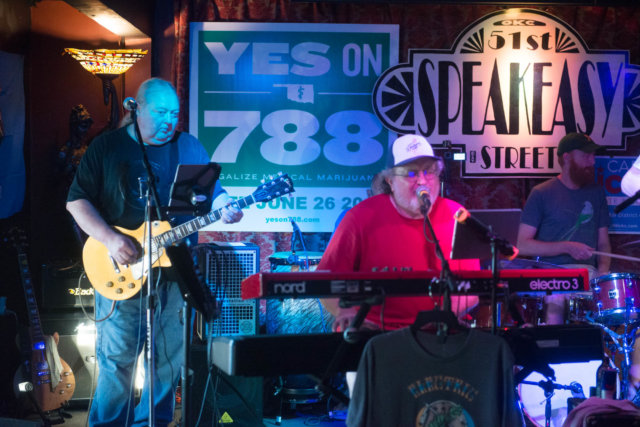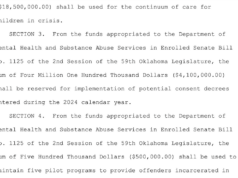

Voters in Oklahoma have passed State Question 788, which will legalize medical marijuana, according to results from the State Election Board. Soon after polls closed, initial voting totals showed favor for the measure by a consistent margin of about 10 points.
Ultimately, 56.8 percent of voters favored SQ 788, while 43.2 percent opposed. Vote totals from Oklahoma’s rural counties processed first, but as urban precincts reported the measure’s margin of victory grew.
“It’s got a 68,000-vote margin, and you’re telling me that the three urban counties haven’t come in yet where the support is likely stronger?” University of Oklahoma political science professor Keith Gaddie rhetorically asked shortly after 9 p.m. “This thing is likely to increase. It could be a landslide.”
Follow @NonDocMedia on:
Oklahoma will join 29 other states as well as the District of Columbia in legalizing medical marijuana. Gov. Mary Fallin has said she is likely to call a special session of the Oklahoma Legislature to create a more robust regulatory framework similar to those found in other states.
The historic passage of SQ 788 will end an outright prohibition against marijuana that has existed in Oklahoma since 1933.
What happens next?
With Fallin likely to call the Oklahoma Legislature back into another special session, lawmakers who chose not to run for re-election — or who lost in their primaries Tuesday night — will still be in office to address the issue.
Among those in that position would be Sen. Ervin Yen (R-OKC) who had opposed SQ 788 without a statutory list of qualifying conditions. Yen lost his Republican primary 60 percent to 40 percent to Joe Howell on Tuesday night.
June 18, a statement published on KFOR.com from Michael McNutt, the governor’s communications director, revealed the reasoning behind another potential special session:
The governor is concerned that the state would not be able to have a system established in 30 days after passage as called for in SQ 788. The governor still plans to talk with Senate and House leadership about a possible special session.
“When the people tell us they want 788, it is the job of the Legislature to effectuate that will,” House Majority Floor Leader Jon Echols (R-OKC) said on KOKC radio at about 8:45 p.m.
In a Twitter thread Tuesday afternoon, Journal Record reporter Catherine Sweeney outlined some of the more nuanced legislative aspects of 788, namely:
- The Legislature will be able to make changes to the statutory language of SQ 788.
- The State Department of Health will be charged with rolling out medical marijuana regulations and enforcement of them.
- SDH already has a 60-page draft of a regulatory framework, which the Board of Health would likely review this summer.
Opposition: ‘We respect the will of the voters’
Dr. Kevin Taubman, past president of the Oklahoma State Medical Association, released a statement around 9:40 p.m. The OSMA had helped lead the opposition campaign to SQ 788.
“We are obviously disappointed by the outcome, as we believe 788 is simply too broadly written to be considered a legitimate medical marijuana program,” Taubman said. “However, we respect the will of the voters, and our member groups look forward to working with the Legislature and the Health Department to advance common-sense regulations that benefit patients while protecting businesses and communities.”
(Update: This story was updated to include comments from Dr. Kevin Taubman at 9:45 p.m., Tuesday, June 26.)




















